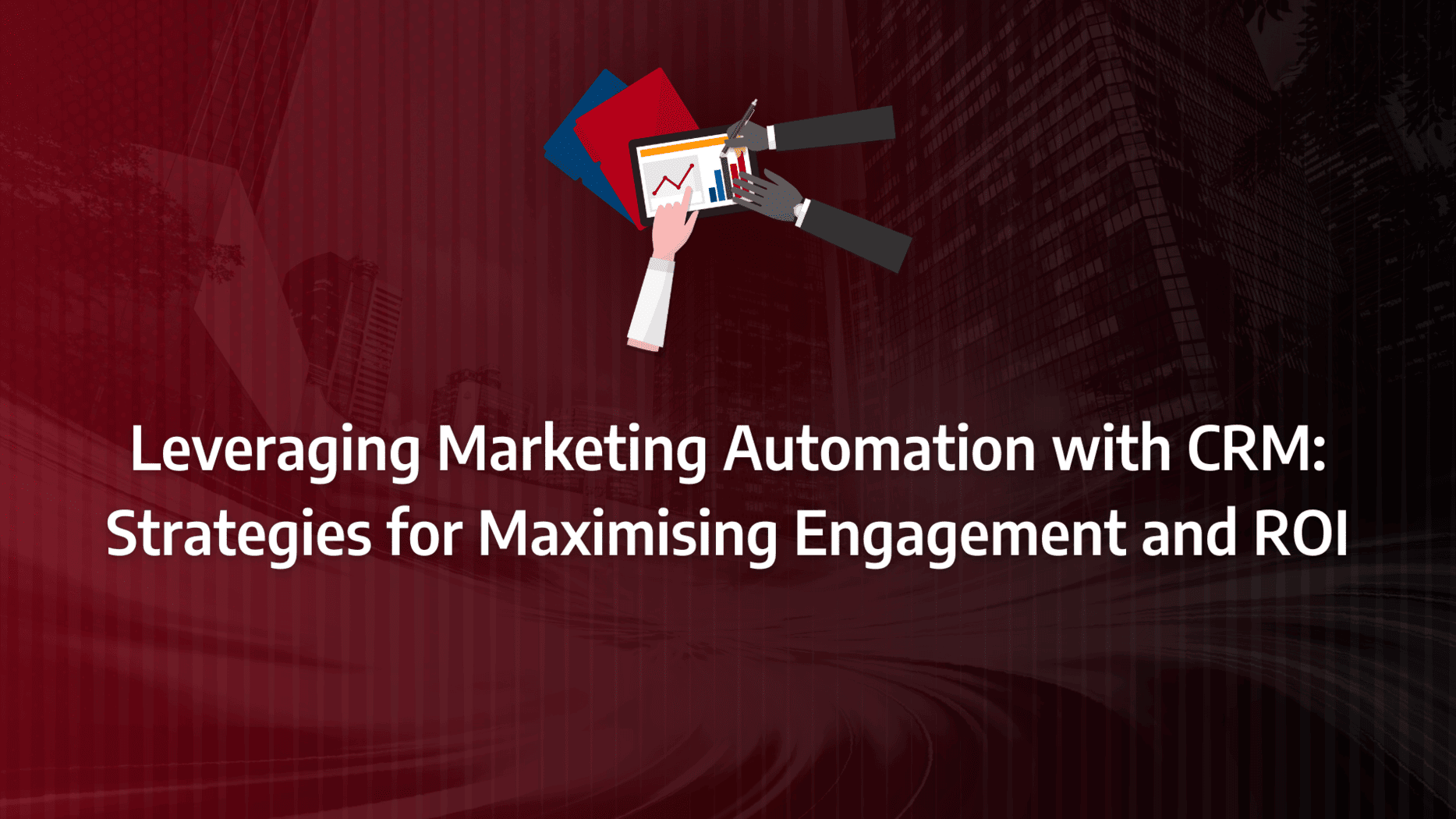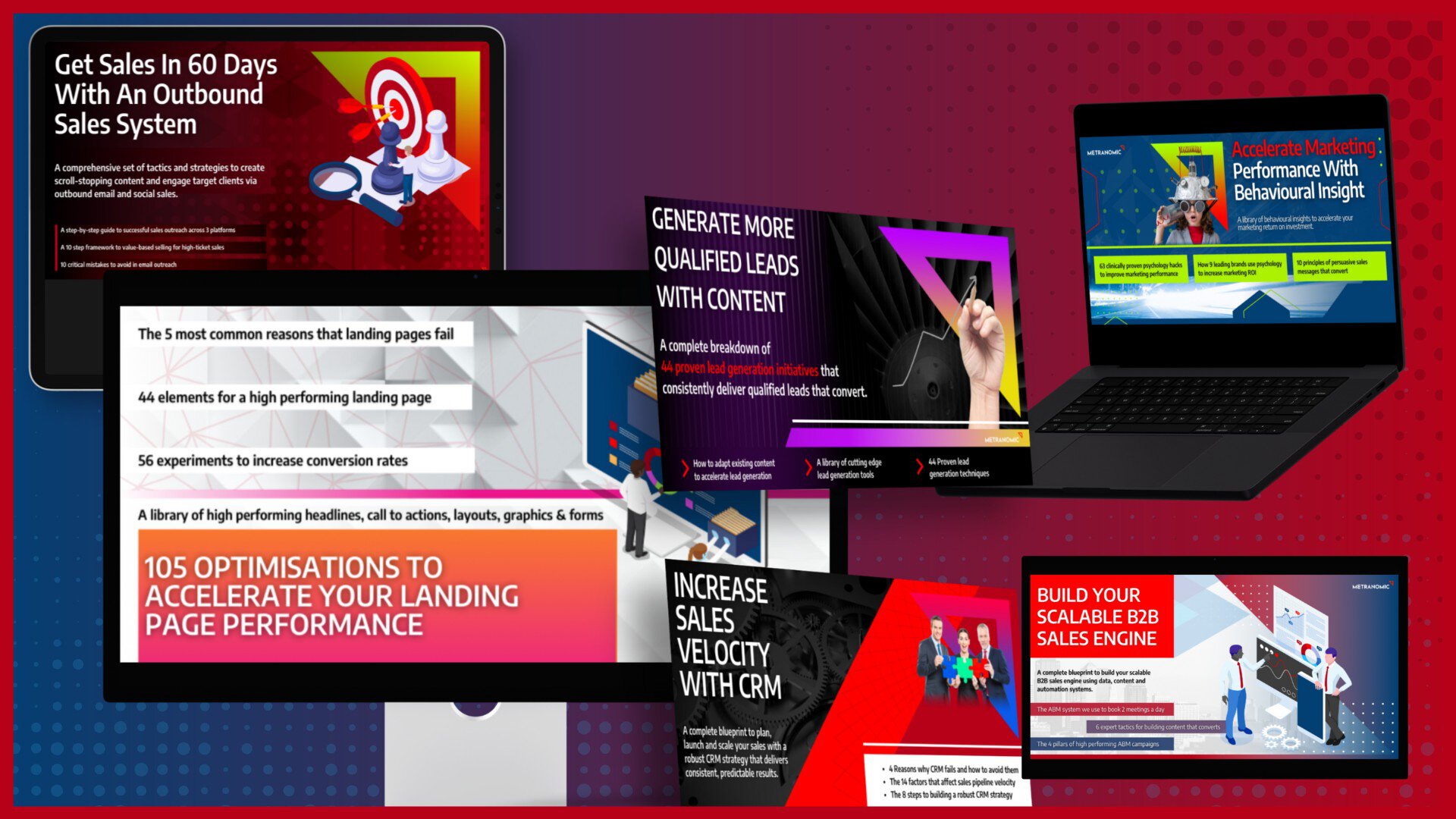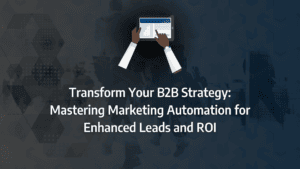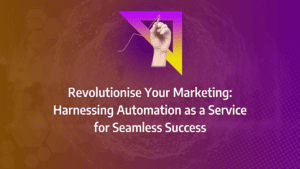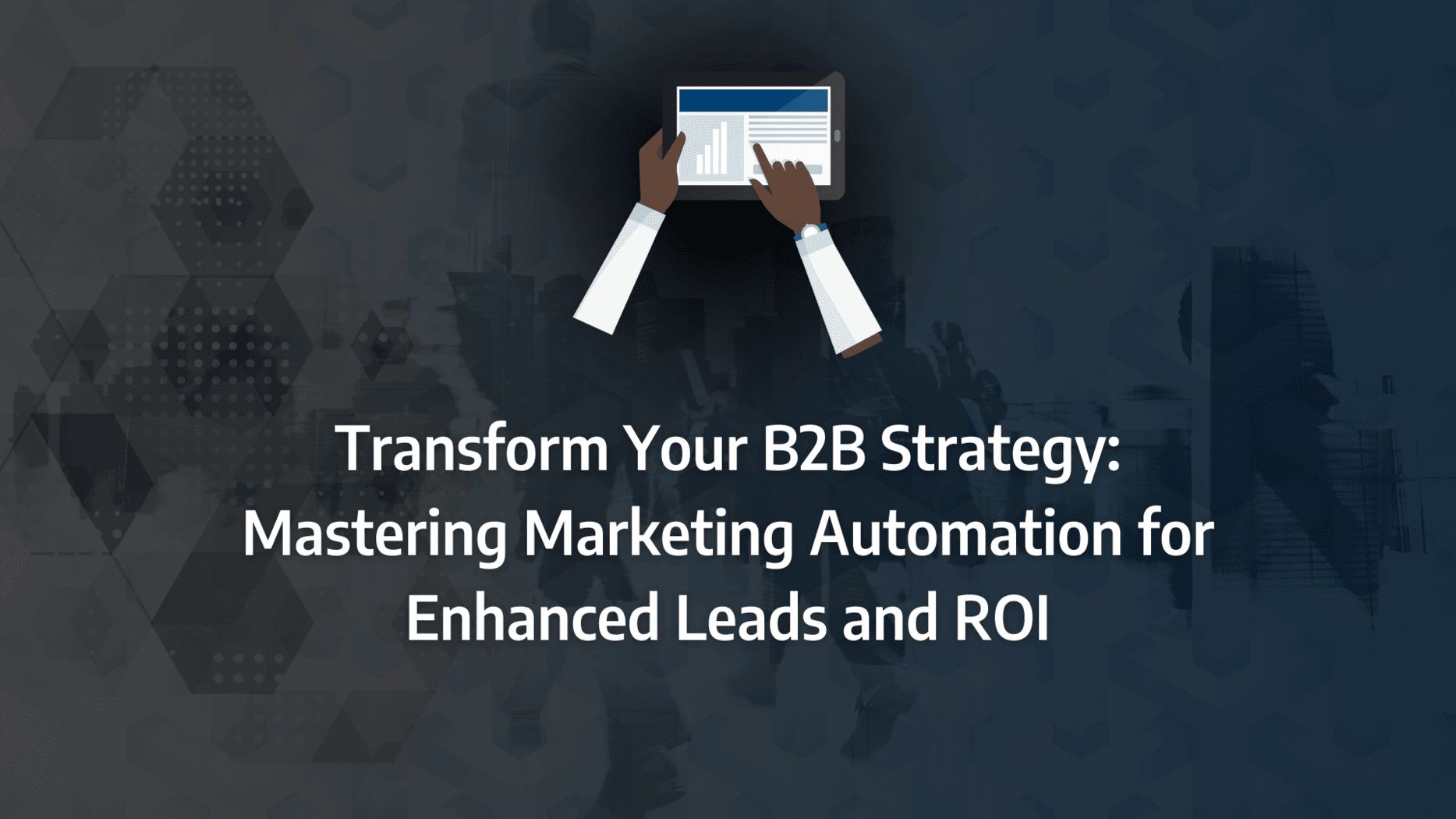Imagine the potential of seamlessly integrating your CRM system with cutting-edge marketing automation tools—how much more impactful could your campaigns become? The power of this integration lies not just in streamlining processes but in transforming how you engage with your customers.
What if the secret to unlocking unparalleled customer loyalty and skyrocketing ROI was just within your grasp? You’re about to discover the strategic edge that could redefine your marketing approach. By harnessing the combined strengths of CRM and marketing automation, you’re not only optimising workflows but also setting the stage for a deeper, more personalised customer experience.
- Integrating CRM with marketing automation enhances customer segmentation, enabling more personalised and effective marketing campaigns.
- Aligning your marketing and sales teams is crucial for maximising the benefits of CRM and marketing automation integration.
- Continuously monitor and adjust your strategies based on data analysis to ensure maximum ROI from your integrated systems.
- Avoid common pitfalls in integration by clearly defining goals and choosing the right tools for your business needs.
What is CRM and Marketing Automation in Simple Terms?
As businesses increasingly embrace digital transformation, new opportunities emerge for creating synergies between systems that might not initially seem connected. CRM and marketing automation are often seen as distinct tools serving separate functions within an organisation. However, when these systems are strategically aligned, the benefits for your business can be profound. When integrated effectively, CRM and marketing automation can drive efficiencies, enhance customer relationships, and deliver superior results across sales and marketing.
What Matters Most?
From our experience, unifying data within your marketing automation and CRM systems is essential, as consistent, accurate data is the backbone of effective automation. Clients often discover that aligning sales and marketing teams through shared CRM data and automated workflows unlocks significant efficiency gains, bridging gaps that typically hinder performance. Moreover, we find that treating CRM as a strategic asset rather than merely a management tool enables deeper personalisation in automation efforts, driving more meaningful engagement.Get In Touch
What Is a CRM?
A Customer Relationship Management (CRM) system serves as the backbone of sales operations. While different parts of an organisation can leverage a CRM, it is predominantly used by sales teams. Its purpose is to manage customer interactions, improve agent productivity, and streamline sales processes. The primary functions of a CRM include:
- Capturing customer data: CRMs collect valuable information on leads, prospects, and existing customers by monitoring their engagement across various touchpoints, such as the company website, social media platforms, and customer service interactions. This data is further enriched with details like purchase history, customer preferences, and personal contact information.
- Centralising customer data: Once gathered, all customer data is stored in a single, accessible database. This allows marketing, sales, and customer service teams to tap into the information at any stage of the sales process, ensuring a unified approach to customer management.
- Proactive engagement: CRMs can trigger automated messages or alerts when specific conditions are met. This includes sending follow-up emails, alerting team members to critical customer status changes, or using artificial intelligence (AI) to predict sales opportunities, enabling your team to be more responsive and proactive.
What Is Marketing Automation?
Marketing automation refers to the technology that automates, streamlines, and measures marketing tasks and workflows, particularly those at the top of the sales funnel. These systems help marketing teams deliver consistent campaigns, analyse their performance, and optimise lead generation efforts. The primary functions of marketing automation systems are:
- Centralising marketing data: Like CRMs, marketing automation platforms collect and store data related to user behaviour, lead interactions, and previous customer engagements in a central database.
- Automating marketing tasks: Routine tasks such as sending bulk emails, tracking interactions, and generating reports are automated. This frees up time for marketers to focus on strategy rather than manual operations.
- Enabling campaign management: These platforms provide intuitive interfaces for creating, managing, and deploying marketing campaigns. They make it easier for teams to execute targeted outreach efforts without needing advanced technical skills.
- Analysing campaign effectiveness: By harnessing analytics, marketing automation systems evaluate the performance of marketing campaigns, identifying what is working and highlighting areas for improvement.
Why Do CRM and Marketing Automation Need Each Other?
Rather than functioning in isolation, CRM and marketing automation platforms are designed to complement one another, creating a powerful synergy that optimises your sales and marketing efforts. When combined, these systems offer several key benefits that enhance efficiency, improve customer engagement, and boost your overall return on investment.
More Complete View of the Customer
Marketing automation serves as the first touchpoint in establishing a relationship with potential leads. By integrating CRM and marketing automation, sales teams gain immediate access to a comprehensive view of a lead’s history, from their first interaction with marketing content to their behaviour across various channels. This rich dataset allows sales representatives to engage prospects with highly personalised messaging right from the start. Moreover, it streamlines the process, as new customers are no longer required to provide the same information repeatedly, making the experience smoother for them and more efficient for your teams.
Better Understanding of What’s Working
When CRM and marketing automation systems are integrated, the flow of data between sales and marketing becomes seamless. This enables both teams to gain a more holistic understanding of performance. For example, marketing can draw on sales data to identify which campaigns are truly converting leads into customers, while sales teams benefit from understanding which marketing efforts are driving the most qualified leads. This closed-loop reporting helps your team make data-driven decisions, refine their strategies, and ultimately improve CRM and marketing automation strategy outcomes. As a result, calculating ROI for marketing campaigns becomes more accurate, allowing you to set realistic and effective goals.
Improved Efficiency
Breaking down data silos through CRM and marketing automation integration not only accelerates data entry but also reduces errors and eliminates redundant tasks. When data is shared effortlessly between systems, follow-up communications can be more precisely targeted to the right leads, based on the latest and most accurate information. This deeper, more unified understanding of the entire sales and marketing process leads to more insightful analytics, better lead scoring, and a significant increase in overall operational efficiency.
Faster Resolution of Issues
When sales performance dips or marketing campaigns fail to hit the mark, an integrated CRM and marketing automation strategy can quickly pinpoint the underlying issues. Whether it’s recognising when leads are no longer viable or identifying declining click-through rates in specific campaigns, integration offers faster insight and resolution. Errors in customer data or contact details are more easily spotted, ensuring that communications reach the intended recipients. Moreover, improving email list health reduces the risk of messages being flagged as spam, safeguarding your brand’s reputation.
How to Integrate CRM and Marketing Automation Software
For your business to fully capitalise on the benefits of CRM and marketing automation integration, it’s crucial that both platforms are aligned and working together seamlessly. When effectively integrated, these systems can transform your marketing and sales operations, driving increased efficiency and better results. Here are four essential steps to ensure a smooth CRM and marketing automation strategy.
1. Personalise Your Marketing and Sales Messaging: One of the primary advantages of integrating CRM and marketing automation software is the ability to deliver highly personalised messaging from the very start of your customer interactions. By combining the power of your CRM’s demographic data with your marketing automation strategy, you can segment your audience more precisely, targeting them with the right content at the right time. For example, your CRM can automatically transfer demographic and behavioural information to your marketing automation system, removing manual data entry tasks and allowing your marketing team to focus on crafting targeted campaigns and paid advertisements.
2. Establish Lead Scoring: A swift response to new leads is key to improving conversion rates. By incorporating lead scoring into your CRM and marketing automation strategy, you can ensure that your most valuable prospects are prioritised. The integration of these platforms allows you to score leads based on their interactions with your marketing content, enabling your team to identify which users are most likely to convert. This makes it easier to send personalised marketing materials to high-priority leads and ensures that your sales team focuses on the most promising opportunities, streamlining the process and enhancing overall efficiency.
3. Eliminate Duplicates: One of the most common issues with integrating systems is the risk of duplicating tasks or customer data. CRM marketing automation tools should work together to centralise information, but if not carefully managed, they can sometimes create overlapping tasks. For instance, entering a customer’s information into both systems can lead to duplication, which not only wastes time but can also frustrate your customers and compromise data accuracy. Regularly auditing your system for duplicate records and tasks is essential to maintain the integrity of your data, prevent false reporting, and avoid any compliance issues.
4. Be Ready to Adapt Your Practices: The integration of marketing automation with CRM is not a one-off task but an ongoing process. As your business evolves, so will the challenges you face with your software systems. After the initial integration, it’s important to stay flexible and prepared to adjust your practices. Developing a plan for continuous monitoring and refinement will allow you to identify potential problems early, and make any necessary adjustments to your CRM and marketing automation strategy in a cost-effective and timely manner.
Source: Deloitte
Best Practices for CRM Marketing Automation Integration
Integrating CRM and marketing automation effectively is key to unlocking the full potential of these systems, driving both efficiency and performance. By following these best practices, you can ensure your CRM and marketing automation strategy runs smoothly and delivers optimal results. Here are seven best practices to guide your CRM automation journey.
1. Audit Your Revenue Processes
Before you begin automating your CRM, you need to identify where the inefficiencies lie within your existing processes. The first step is to conduct a comprehensive audit of your current revenue operations, from lead generation through to customer support. Where are the manual interventions slowing things down? Where do you experience the most delays? And what are your sales reps spending too much time on?
It’s essential to gather data from your sales team and analyse hard metrics. This allows you to map your processes against the customer journey, pinpoint bottlenecks, and identify the areas where automation could make the greatest impact. This forms the foundation of a strong CRM and marketing automation strategy.
2. Define Specific Goals for CRM Automation
Once you have identified the areas for improvement, the next step is to establish clear goals for your automation. These goals will be specific to your organisation, but the following examples may help shape your strategy:
- Increase lead conversion: Automate tasks like lead scoring, follow-up emails, and lead nurturing to prioritise leads more effectively and convert them faster.
- Improve sales productivity: Automate administrative tasks such as data entry, task assignments, and meeting scheduling, freeing up your sales teams to focus on selling.
- Accelerate the sales cycle: Automate proposal generation and approval workflows to reduce delays and shorten the overall sales cycle.
As well as setting goals, it’s important to define success metrics, agree on the scope of automation projects, allocate resources, and assign stakeholder roles. This ensures you have a clear, actionable plan to guide your CRM and marketing automation integration.
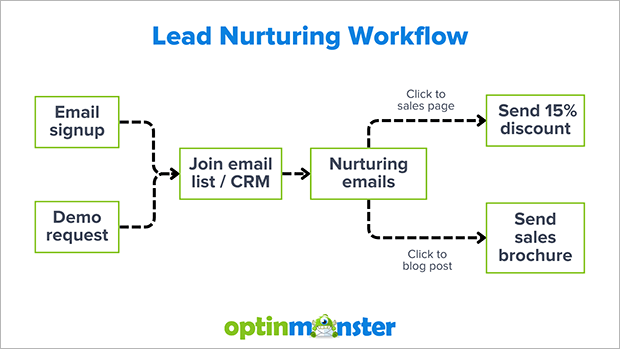
3. Develop a Framework for Automation
Creating a structured framework is essential for successful automation. To do this, you’ll need to focus on three main areas:
-
- Sales workflows: Identify which tasks and processes can be automated. For instance, AI-powered tools can automatically transcribe and analyse sales call notes, picking up key signals such as customer dissatisfaction or mentions of competitors. These notes are then logged into your CRM, freeing up your sales team to focus on more strategic activities.
- Data hygiene: Poor-quality data costs businesses millions each year and leads to poor decision-making. Automation can help ensure clean, reliable contact information is collected and updated as prospects move through the sales pipeline.
- Visualisation and insights: For effective CRM marketing automation tools, it’s vital to have real-time data visualisation. Sales managers need dashboards that provide quick access to insights on sales activities, deal stages, and team performance, allowing them to make data-driven decisions and adjust strategies as needed.
Source: EmailVendorSelection
4. Customise Your CRM Automation Features
Most CRM and marketing automation platforms, such as HubSpot or Salesforce, offer built-in automation tools. These can be customised to suit your specific business processes. For example, you can set up workflow rules that trigger actions based on predefined conditions. This could include automatically sending a welcome email when a new lead is added, or assigning a task to a sales rep when a lead hits a certain score. Tailoring these features to fit your unique needs ensures that your marketing automation strategy functions effectively.
5. Integrate Your CRM with Other Tools
To maximise the benefits of your CRM and marketing automation integration, it’s essential to integrate your CRM with other tools your team uses. Seamless data sharing between your CRM and marketing tools enables you to have a unified view of your leads and customers, saving your team from the hassle of switching between different systems. Many CRM platforms come with built-in integration options, but if not, tools like Zapier can help connect your systems efficiently.
Our Tactical Recommendations
In our experience, integrating behavioural data with CRM is a game-changer, as it allows automation to respond in real time to customer actions, often leading to improved lead nurturing and conversion rates. Clients often discover that regularly auditing their automation workflows ensures alignment with CRM data and customer journeys, which prevents the common pitfall of ineffective campaigns. Typically, focusing on customer lifecycle stages within CRM provides a clearer roadmap for automation, aligning content and messaging to where the customer is in their journey, leading to more effective engagement.Get In Touch
What’s the Best CRM for Both Sales and Marketing?
Selecting the right CRM is crucial for ensuring a seamless CRM and marketing automation integration that meets the needs of both your sales and marketing teams. With numerous options on the market, finding the best fit can be challenging. Below are three of the top CRMs known for their versatility and scalability across various business sizes and needs.
Salesforce
Salesforce often finds itself at the top of the CRM list, and for good reason. Holding 23% of the CRM market share, Salesforce is trusted by thousands of companies globally, from small businesses to large enterprises. Its flexibility, particularly when scaling fast-growing businesses, makes it ideal for those whose current software isn’t keeping pace.
- Pros:
- Extensive AI features via the Einstein 1 Platform, which enhances the ability to analyse data and predict sales outcomes.
- Highly focused on gathering customer data to provide clear insights and increased visibility across teams.
- Cons:
- Migrating out of Salesforce, should you ever choose to do so, can be difficult due to the platform’s complexity.
Salesforce offers a highly customisable system with numerous add-ons and extensions, allowing you to build on its base features as your business grows. For marketing teams, the Starter Suite provides the tools needed to upload email templates, set up nurture sequences, and track customer interactions. This level of personalisation and segmentation enables marketing teams to deliver highly targeted messaging, making Salesforce a strong choice for implementing a CRM and marketing automation strategy.
HubSpot
When it comes to versatility, HubSpot is hard to beat. HubSpot provides a range of Hubs, covering sales, marketing, customer support, content management, and more. Whether you’re an individual or a large enterprise, HubSpot’s pricing and features can be tailored to meet your needs.
- Pros:
- Intuitive user experience, making it accessible to users of all skill levels.
- Two-way data synchronisation with other apps, which ensures consistent data flow between systems.
- Cons:
- The enterprise-level plans can become quite expensive as your requirements grow.
HubSpot is particularly known for its generous free plan, offering basic features across its various Hubs and allowing businesses to get started without any upfront cost. This makes it a great choice for startups aiming to score quick wins with limited budgets. As your business grows, HubSpot’s flexible pricing allows you to upgrade individual features as needed, making it an excellent foundation for your marketing automation strategy.
Pipedrive
Pipedrive excels as one of the most user-friendly CRMs available, designed by salespeople for salespeople. It offers a clean, intuitive interface, which helps users stay focused and productive, ensuring that workflows remain smooth and efficient.
- Pros:
- Simple workflow automation that helps users stay organised without overwhelming them.
- Abundant educational content to support users in getting the most out of the platform.
- Cons:
- AI features, while present, are not as visible or advanced as those offered by competitors.
Pipedrive’s simplicity is its strength. The layout is uncluttered, with clear directions for accessing settings and actions. The dynamic icons in the sales pipeline change based on deal status, allowing you to quickly assess where your attention is needed. This clarity and ease of use make it a solid option for companies that want an effective CRM marketing automation tool without unnecessary complexity.
